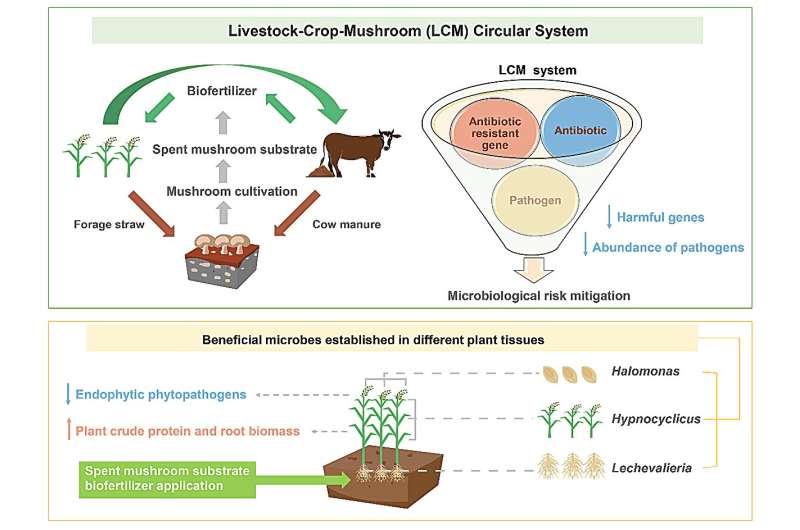Global agriculture faces mounting waste disposal challenges and the threat of antibiotic resistance. Mushroom-based composting emerges as a promising solution to improve waste degradation, reduce pathogens, and curb the spread of antibiotic resistance genes, safeguarding agricultural safety and the environment.
Mushroom-based composting can cut farm waste, pathogens and antibiotic resistance genes

Key Takeaways:
- Global farms produce over 14 billion tons of crop straw and 125 million tons of livestock manure annually.
- Traditional composting methods are inefficient and leave behind pathogens and antibiotic resistance genes.
- Antibiotic use in livestock contributes to the environmental spread of antibiotic resistance genes.
- Mushroom-based composting can enhance waste degradation and reduce harmful agents.
- Implementing innovative composting methods is crucial for environmental protection and agricultural safety.
Mushroom Composting: A New Frontier in Agricultural Waste
The Mounting Challenge of Agricultural Waste
Global agriculture is generating unprecedented amounts of waste, with an estimated 14 billion tons of crop straw and 125 million tons of livestock manure produced each year. This colossal accumulation presents significant disposal challenges for farmers worldwide.
The Shortcomings of Traditional Composting
Traditional composting methods have struggled to keep pace with this waste production. Inefficient in degrading lignocellulose—the complex organic polymer found in plant cell walls—these methods often fail to break down crop residues effectively. Moreover, pathogens and antibiotic resistance genes (ARGs) frequently persist through the composting process, posing additional risks.
Antibiotics and the Rise of Resistance
The widespread use of antibiotics, such as oxytetracycline in livestock, exacerbates the problem. These substances contribute to the proliferation of ARGs in the environment. When manure containing antibiotics is applied to soil, ARGs can spread through soil-plant systems, threatening both agricultural safety and ecological balance.
Mushroom-Based Composting as an Innovative Solution
Enter mushroom-based composting—a novel approach that harnesses the natural degradation capabilities of fungi. Mushrooms can break down lignocellulose more efficiently than traditional methods, reducing the volume of waste more effectively. Additionally, this process has the potential to diminish the presence of harmful pathogens and ARGs in the final compost.
Benefits for the Environment and Agriculture
Adopting mushroom-based composting could revolutionize waste management in agriculture. By enhancing degradation efficiency and mitigating the spread of antibiotic resistance, this method supports environmental protection and promotes safer farming practices. It represents a critical step forward in addressing the intertwined challenges of waste disposal and antibiotic resistance.
Embracing Innovative Solutions
As the global agricultural sector continues to grapple with waste and resistance issues, innovative strategies like mushroom-based composting become increasingly vital. Implementing such solutions is essential not only for managing current waste but also for securing a sustainable and safe future for agriculture and the environment.











